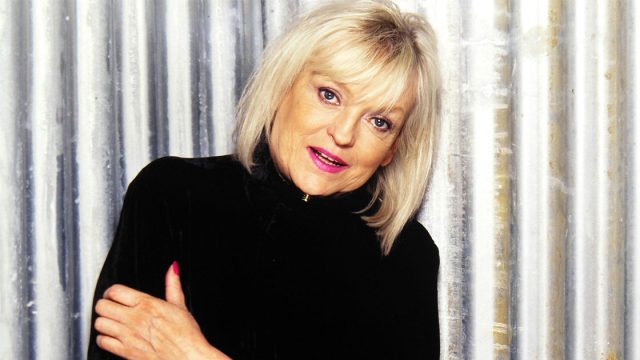Annie Nightingale, BBC Radio 1’s First Female DJ, Dies Aged 83

Annie Nightingale, the first female presenter on BBC Radio 1 and the station’s longest-serving DJ, has died at the age of 83, the BBC has confirmed.
Her family said that she died on 11 January at home in London following a short illness. In an official statement they described her as a “pioneer, trailblazer and inspiration to many. Her impulse to share that enthusiasm with audiences remained undimmed after six decades of broadcasting on BBC TV and radio globally.
“Never underestimate the role model she became. Breaking down doors by refusing to bow down to sexual prejudice and male fear gave encouragement to generations of young women who, like Annie, only wanted to tell you about an amazing tune they had just heard.
“Watching Annie do this on television in the 1970s, most famously as a presenter on the BBC music show The Old Grey Whistle Test, or hearing her play the latest breakbeat techno on Radio 1 is testimony to someone who never stopped believing in the magic of rock’n’roll.”
Annie Nightingale was born in Middlesex on 1 April 1940. She started her career working in television and newspapers, and became the host of the 1960s TV pop show That’s for Me. She continued working in television while running a chain of fashion shops and modelling. In the late 1960s, inspired by the advent of pop pirate radio, she lobbied for a job on the BBC’s nascent Radio 1, which at the time had banned female presenters.
“When the pirates and then Radio 1 came along, I was very keen to get involved,” she told NME in 1978. “I seemed to find that broadcasting came easy – certainly easier than writing. But nobody wanted to know.” By 1970 she was successful – thanks in part to support from the Beatles’ press officer Derek Taylor – and a trial run led to an afternoon presenting job.
She was the only female DJ at the station for 12 years, until Janice Long joined in 1982. By that time Nightingale had transferred to an evening slot, which gave her greater freedom over the style of music she played. “From day one, I chose the records I wanted to play, and stuck to it ever since,” she wrote in her 2020 memoir, Hey Hi Hello: Five Decades of Pop Culture From Britain’s First Female DJ. “I wasn’t there for the ‘exposure’. I preferred the evenings, where I wouldn’t have to introduce playlist tunes I didn’t like. That would have been like lying to me.”
Having first Radio 1 in 1970, Nightingale never left, and holds the world record for having the longest career as a female radio presenter. Her programme Annie Nightingale Presents featured the famed dance music fan’s “biggest bass bangers”: her most recent show, broadcast on 9 January, featured songs by Deadmau5 and remixes of songs by AJ Tracey and Jorja Smith and US rapper Ice Spice.
Nightingale famously presented Radio 1’s Request Show in the 1970s, 80s and 90s before moving to an overnight slot. She also hosted occasional shows on Radio 2, 5 Live and 6 Music, as well as a range of documentaries.
“Every week, in my job, is a new adventure. I enjoy it,” she said last July. “People don’t understand. Most people get bored with pop music when they’re a certain age. I go on being interested in where it’s going, the twists and turns.”
She was awarded an MBE in 2002 and a CBE in 2020. In 2004, she became the first female DJ from Radio 1 to be inducted into the Radio Academy Hall of Fame.
Tributes to Nightingale have already started to pour in. Annie Mac, who also had a lengthy stint broadcasting at Radio 1, wrote on Instagram: “She smashed through all the sexist stereotypes of what kind of broadcaster a woman should be. And she didn’t stop. She kept going, her very existence as an older woman playing underground music on Radio 1 was subversive.”
BBC Radio 2 presenter Zoe Ball said she was “heartbroken” at the news, adding: “She loved music like no other, she sought out the tunes and artists that shaped our lives, she interviewed them all, opening doors for musicians, DJs and broadcasters alike.”
Fellow Radio 2 host Jo Whiley said Nightingale was “the coolest woman who ever graced the airwaves. She blazed a trail for us all and never compromised. Her passion for music never diminished.”
Glastonbury Festival co-organiser Emily Eavis said she had been “an inspiration to so many women in music” and a “lovely human being”. She added: “Goodbye dear Annie, a female trailblazer and true enthusiast.”

